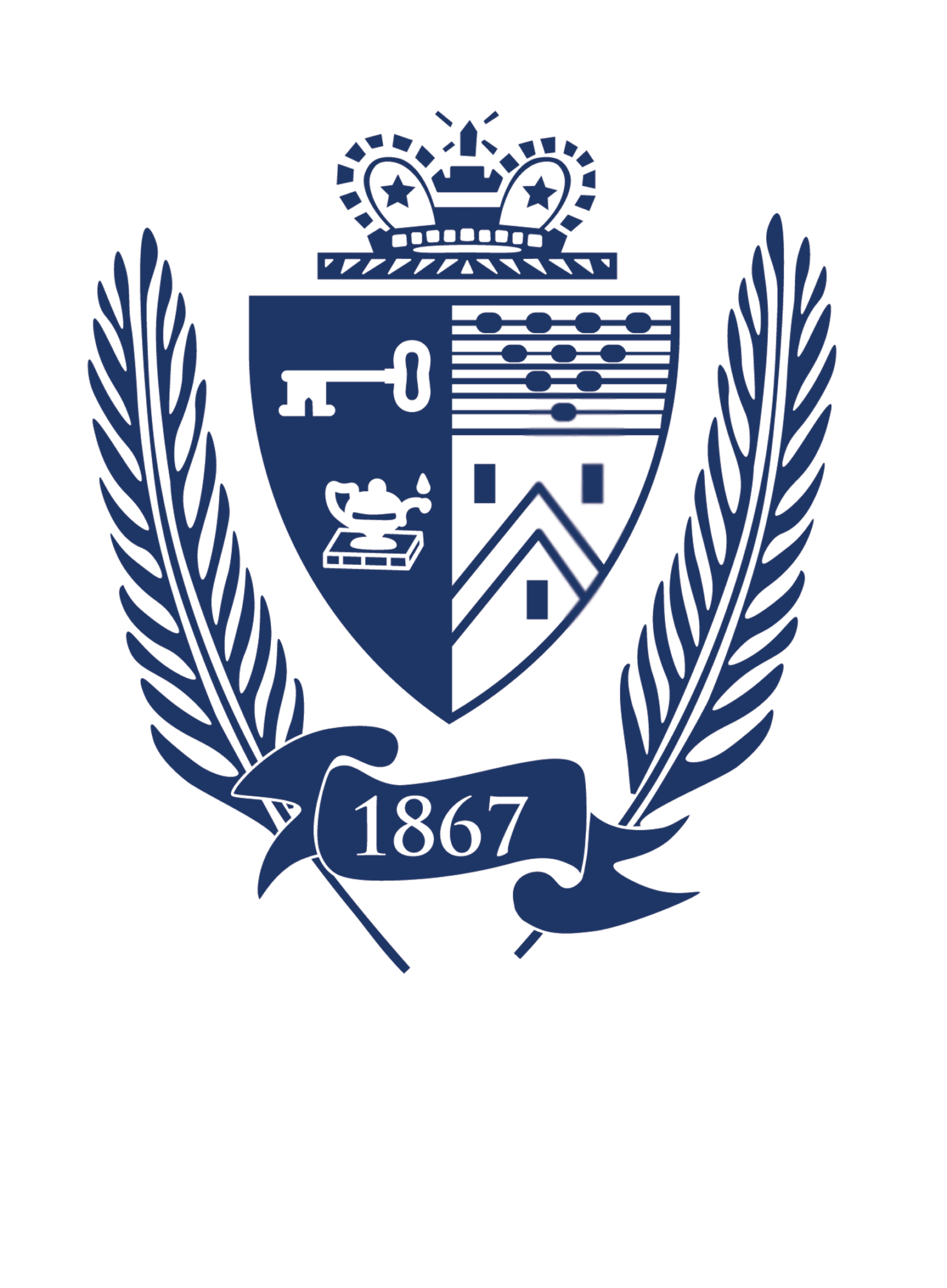The mathematics program at The Storm King School develops the approaches, skills and ideas that will enable students to thrive in a rapidly changing world. Our students learn how to solve mathematical problems through an assortment of strategies, how to communicate their solutions clearly, how to work effectively on projects with their peers, and how to use technology.
After thorough evaluation, students are placed at a level of mathematics that will provide them with appropriate challenges and successes. Many first-year students will begin with Pre-Algebra in the 8th grade and Algebra I in 9th grade, before moving on to Algebra II. Geometry must be completed prior to taking any more advanced math classes, such as Precalculus or Calculus.
Our Courses
Algebra Skills
Algebra Skills is an eighth grade math option for students, reviewing basic fundamental concepts in order to succeed in high school math.
READ MOREAlgebra Skills
Algebra Skills is an eighth grade math option for students, reviewing basic fundamental concepts in order to succeed in high school math. Topics include but are not limited to orders of operation, algebraic manipulation, exponent rules, algebraic inequalities, factoring, the quadratic formula, and introduction to complex numbers.
Algebra II
Basic mathematical skills and the logical approach they teach are essential to a student’s ability to interpret data.
READ MOREAlgebra II
Basic mathematical skills and the logical approach they teach are essential to a student’s ability to interpret data and gain predictive and generalized meaning from raw observation. Mastery of these basic skills will give the student the confidence and desire to investigate the world of higher math. Students will expand skills learned in Algebra and will study higher-level skills such as rational expressions, radical equations, imaginary numbers, solving quadratics, transforming functions, and conic sections. Algebra II is the prerequisite to Precalculus.
Precalculus
Topics in Precalculus include advanced subjects in algebra, geometry, trigonometry, and other areas of mathematics.
READ MOREPrecalculus
Topics in Precalculus include advanced subjects in algebra, geometry, trigonometry, and other areas of mathematics. In addition to forming the foundation for the study of calculus, the topics covered in this class have wide-ranging applications in science, art, engineering, architecture, navigation, and many other areas. Literally “measuring triangles,” trigonometry builds on foundations of geometry and algebra to form powerful tools of analysis and modeling. Developed independently in several cultures, trigonometry most likely provided tools to astronomers and engineers of the ancient world. Today, its applications range from astrophysics to acoustics, spanning across virtually every field of science and engineering. From exponential to power functions, logistic functions to sinusoids, this course will give students the tools they need to analyze a function in a multiple of ways. We will be using a graphing calculator heavily in this course. Precalculus is the prerequisite for Calculus, AP Calculus and AP Statistics.
Algebra I
Algebra I is the foundational high school mathematics course. It is the connection between the concrete to the abstract study of mathematics.
READ MOREAlgebra I
Geometry
This course includes an in-depth analysis of plane, solid, and coordinate geometry as they relate to diverse mathematical concepts.
READ MOREGeometry
This course includes an in-depth analysis of plane, solid, and coordinate geometry as they relate to diverse mathematical concepts. Topics include logic and proof, parallel lines, polygons, perimeter and area analysis, similarity and congruence, and applications to real life situations. Emphasis will be placed on developing critical thinking skills as they relate to logical reasoning and argument. Students will be required to use different types of reasoning and explanation to discover much of the course content. Additionally, students will be required to construct project material outside of the classroom. The nature of the course is designed to expand the students’ ability in explaining the steps they took to solve a problem.
Calculus
Typically, a junior or senior level class, regular calculus covers many of the same topics covered on the AP AB Exam.
READ MORECalculus
Typically, a junior or senior level class, regular calculus covers many of the same topics covered on the AP AB Exam, at a different pace. We cover limits and continuity, limit definition of derivative, product, quotient and chain rules, logarithmic differentiation and implicit differentiation. From there we look at typical applications of differentiation such as curve sketching, optimization, related rates and Newton’s Method. For the remainder of the time, we delve into several methods of integration, from basic substitution through parts, partial fractions and trigonometric integrals. The successful completion of this course has a student well-prepared for both AP Calculus and college calculus. Prerequisite: Precalculus
Advanced Calculus
Advanced Calculus is one of our most advanced mathematics classes. It covers everything typically covered in the first two semesters.
READ MOREAlgebra I
AP Calculus AB
AP Calculus is a traditional first-year, college level course with performance standards established by the College Board.
READ MOREAP Calculus AB
AP Calculus is a traditional first-year, college level course with performance standards established by the College Board. Since these standards are very demanding for most high school students, the course is designed for those students who have demonstrated excellent mathematical abilities in the classroom through Precalculus. As a discipline, calculus is where the student makes the “jump” from the static world to the dynamic world. No longer is the focus on “how much” we have, but on “how fast is it changing.” Are things getting better or worse? Are things getting bigger or smaller? This subtle but profound change in the questions asked by great thinkers resulted in the development of Calculus, one of the most important accomplishments of humanity. This is the course in which the student begins to understand the mathematical tools needed to make the world from the industrial revolution onward possible. The AP Calculus course requires a “B-” or higher in Precalculus. This is a demanding course, and students should expect to have 4-5 hours of homework per week. Prerequisite: Precalculus (B- grade or higher)
Multivariable Calculus
This course follows the syllabus of a typical college sophomore-level multivariable class.
READ MOREMultivariable Calculus
This course follows the syllabus of a typical college sophomore-level multivariable class. It begins with vectors, inner and outer products, and unit basis vector format, followed by vector calculus, including differentiation and integration, arc length, surface area, and Lagrange Multipliers. Later, it progresses to multiple integrals, coordinate changes including polar, cylindrical, and spherical coordinates, and the Jacobian for change of variables. Finally, if time allows, the semester concludes with line integrals, Green’s Theorem, Stoke’s Theorem, and the Divergence Theorem.
AP Statistics
AP Statistics is an introductory college-level course with performance standards established by the College Board.
READ MOREAP Statistics
AP Statistics is an introductory college-level course with performance standards established by the College Board. Since these standards are very demanding for most high school students, the course is designed for those students who have demonstrated excellent mathematical and verbal abilities in the classroom. As a discipline, statistics is often where the student evolves from analyzing the idealized mathematical world to understanding the ambiguity of the real world. Answers are no longer clear-cut, and data is often of dubious quality. Nevertheless, unless we wish to resort to opinion and speculation, the data can still be used, but it must be used correctly. Statistical methods, therefore, emphasize the interpretation of data and recognition of its limitations. AP Statistics is a demanding course, and the students should expect to have 4-5 hours of homework per week.
Prerequisite: Precalculus
Advanced Topics in Mathematics
Advanced Topics is the most advanced mathematics course offered at The Storm King School.
READ MOREAdvanced Topics in Mathematics
Advanced Topics is the most advanced mathematics course offered at The Storm King School. Offered to seniors who have already completed the Advanced Placement curriculum, it seeks to offer students a window into more advanced mathematics and train them as Peer Tutors to work in Study Hall. The typical week is evenly split between an overview of what the lower-level math classes are covering, to be well prepared to work in Study Hall, and advanced math. The topics covered include multivariable calculus, linear algebra, and classical algebra including basic group theory and number theory, ending with forays into complex analysis and manifold theory.
Meet the Faculty









